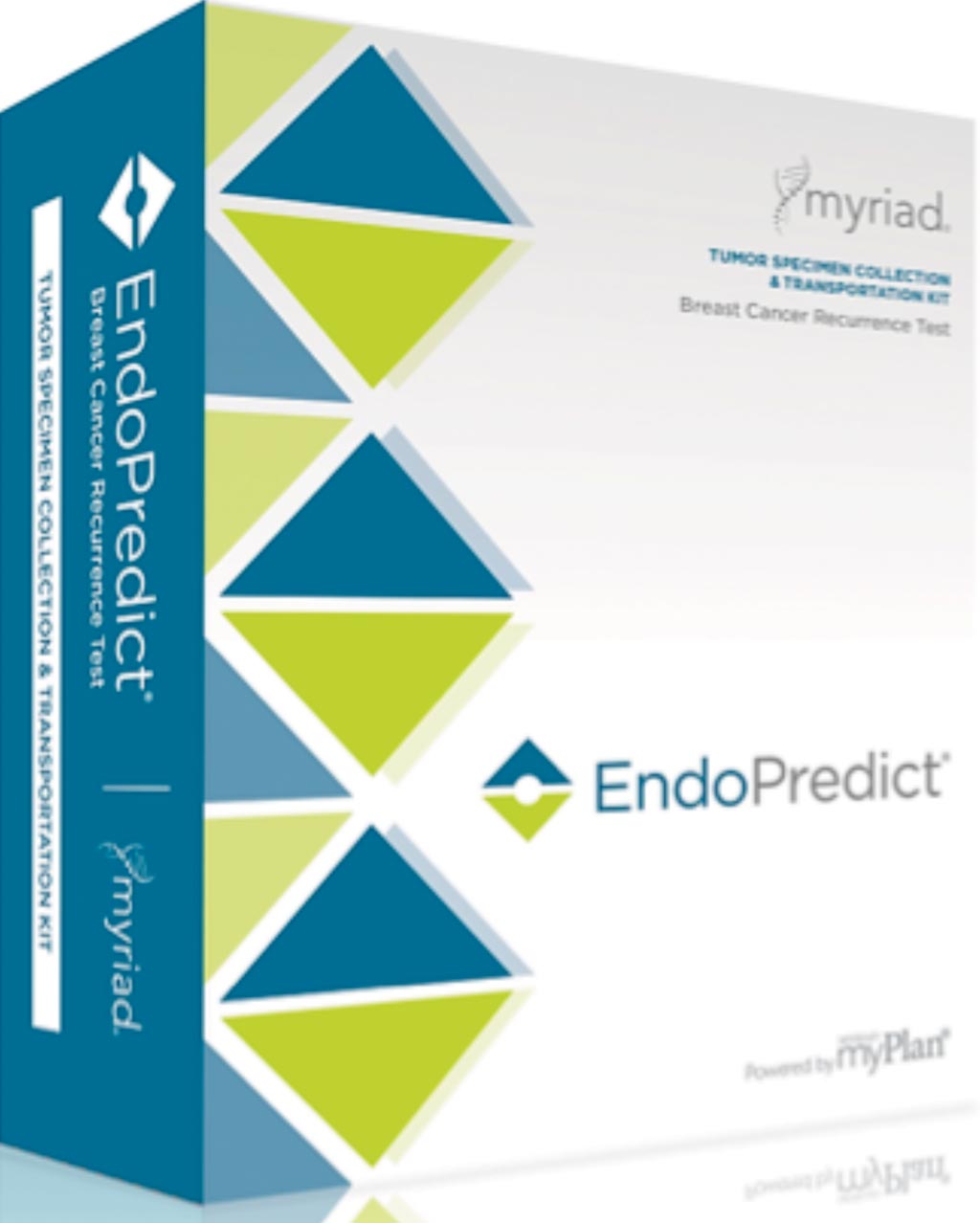Multigene Expression Profiling Assays Compared for Cancer
By LabMedica International staff writers
Posted on 19 Jul 2019
A cost-effectiveness analysis recently published has added another factor to the ongoing competition and debate between various companies offering genomic breast cancer recurrence assays.Posted on 19 Jul 2019
Gene expression profiling testing is available to aid in chemotherapy decision-making when traditional clinicopathological predictors are insufficient to accurately determine recurrence risk in women with axillary lymph node-negative, hormone receptor-positive, and human epidermal growth factor-receptor 2-negative early-stage breast cancer.

Image: EndoPredict is a next-generation breast cancer recurrence test that integrates tumor biology and pathology to accurately predict early and late (5-15 years) recurrence with an individualized absolute chemotherapy benefit (Photo courtesy of Myriad Genetics).
A team of scientists led by those at Western University (London, ON, Canada) examined the cost-effectiveness of incorporating multigene assays into standard practice. A decision model was built to project lifetime clinical and economic consequences of different adjuvant treatment-guiding strategies. The gene expression profiling (GEP) assay that were compared were the 12-gene recurrence score (RS) assay EndoPredict, the 58-gene RS assay Prosigna, and the 21-gene RS assay Oncotype DX.
To model the impact of gene expression testing on patient outcomes, the group inputted risk distributions for the three assays alongside 10-year survival estimates from the ATAC data. They combined these factors with rates of chemotherapy administration from a recent Canadian field evaluation of adjuvant therapy decision-making with and without Oncotype Dx testing.
Based on their calculations, the scientists concluded that EndoPredict, Prosigna, and Oncotype DX had cost-effectiveness ratios of USD 36,274, USD 48,525, and USD 74,911 per quality-adjusted life year (QALY) gained. This corresponded to total gains of 379, 284.3, and 189.5 QALYs/year and total budgets of USD 12.9, USD 14.2, and USD 16.6 million/year, respectively. The data also suggested that the NanoString and Myriad tests could improve the cost-effectiveness of gene expression testing and offer higher value for the money, with Myriad taking the top spot in terms of cost-effectiveness.
Importantly, the authors stated that they believe prospective evidence is still needed to confirm the findings from their modeling using the ATAC data, and as such, "results should be interpreted with caution." For one, the model treated all three tests similarly, assuming relative benefit from adjuvant chemotherapy to be the same across patient risk groups. But since the cutoff for the team's analysis, the field has now seen the finalization and publication of the prospective TAILORx trial, which confirmed that Genomic Health's Oncotype DX assay, unlike other tests, does directly predict benefit or lack of benefit from chemotherapy. Altering the model to reflect this could thus change the QALY results. The study was published May 27, 2019, in the journal The Pharmacogenomics Journal.
Related Links:
Western University













